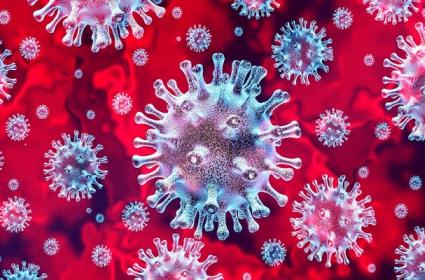Immune Evasion Behind Rapid Spread of Dominant SARS-CoV-2 Strain Omicron

According to studies, Omicron's immune evasion is the cause of its fast spread.
New York: Immune evasion is the cause of the Omicron variant's greater transmissibility, according to two new investigations that have not yet been peer-reviewed.
The Omicron strain, which was first discovered in late November in South Africa and Botswana, has now been found in 171 nations.
In several countries, it has quickly surpassed other SARS-CoV-2 strains to become the dominant strain.
According to Nature, the two studies reveal that the variant has succeeded despite viral levels in the body being equivalent to — or lower than — those of its primary competitor, the Delta variety.
Infected people who are infected with Omicron do not release large amounts of the virus. Its hyper-transmissibility is due to its capacity to avoid the SARS-CoV-2 protection induced by vaccination or previous infection, according to Emily Bruce, a virologist at the University of Vermont in Burlington.
The first study, conducted at the Harvard T. H. Chan School of Public Health in Boston, looked at the PCR results of the nose and throat swabs collected from sick people and discovered that those with Delta had a slightly greater peak viral load than those with Omicron.
"Naturally, you’d think that higher transmissibility must cause a higher viral load," said Benjamin Meyer, a virologist at the University of Geneva in Switzerland.
As a result, Meyer and his colleagues solely detected viral RNA in their research. They also counted the number of infectious virus particles on swabs taken from a separate group of nearly 150 people who had been infected. The virus loads of vaccinated patients infected with Omicron and those infected with Delta did not differ significantly using this more stringent technique.
Also Read: Is Severe Pain in Legs A Symptom of COVID?
The researchers also looked at samples from people who had been vaccinated but still became sick with the Delta virus despite being immunised. According to the article, they discovered that nearly half of the samples still had infectious viruses five days after the individuals tested positive.
Similarly, Harvard researchers discovered that five days after an initial positive Omicron test, nearly half of the people examined had virus levels high enough to be contagious.
According to Yonatan Grad, an infectious-disease specialist at Harvard, such findings are concerning because guidelines published by the US Centers for Disease Control and Prevention (CDC) allow people infected with the virus to end their isolation five days after either testing positive or experiencing their first symptoms.
Individuals infected with Omicron had higher variability in viral load than those infected with Delta, according to Brad's study. "That means there’s no clear ‘one size fits all’ approach," he explained.



















